- Home
- B. V. Larson
Conquest (Star Force Series) Page 2
Conquest (Star Force Series) Read online
Page 2
“You drive a hard bargain Admiral,” I said, “but I accept your terms.”
-2-
Major Barrera was among the first of my staff to move into the new building. A swarthy, barrel-chested man with a mean look to him, he’d been my exec on Andros Island ever since we’d declared our independence from the governments of Earth. He was quiet, efficient and loyal—the polar opposite of Crow.
Barrera carried a box under each arm and wore a grin on his face. I ushered him to one of the prime corner offices on the top floor. He couldn’t wait to move in. I’d seen the tin-roofed shack Crow had assigned him to previously, and I couldn’t blame him for being happy about the upgrade.
“Good to have you back, sir,” he said.
I nodded. “Good to be here, Major. Call a mandatory staff meeting for noon today in my office.”
“Yes, sir,” he said, putting the boxes down on his desk. He immediately left to work on the task I’d assigned him. His new office could wait until the job was done.
I nodded to myself, looking after him as he stabbed fingers at his com link. Classic Barrera. He hadn’t asked what the meeting was about. He hadn’t insisted on an agenda he could email around or post on some automated scheduler. He just took the order and ran with it. I knew he’d find everyone who wasn’t available via their com-link and hassle them in person. Once again, I considered raising his rank. But then I would probably have to raise mine as well. Giving myself promotions always felt weird, so I’d avoided it for a long time now. I’d look into it later.
It was a shame to send Crow’s attractive clerical people packing, but I only had enough actual work for a few of them. When I looked into what they’d been doing for him, most had spent their time buying stuff. They were titled: purchasing agents. They worked tirelessly online and over the phone to get rare items shipped to Andros Island. At first, there had been some reluctance to send so many specialized goods and services down to a half-deserted island in the Caribbean, but word soon got around that we were loaded with government funding. Our accounts were always paid on time, so the merchants of the world stepped up to make the deliveries happen.
It was jaw-dropping, the things Crow had been ordering on a daily basis. Sure, many of the budget items were understandable. Our Nano tech factories could duplicate almost anything, but required a lot of rare earths as raw materials to do it. Palladium, promethium and neodymium were used in the construction of our fusion generators. Holmium and erbium were required for our lasers. We needed shocking quantities of these unusual minerals, and as the market tightened up the prices had skyrocketed.
It was the luxury items that I objected to. Crow had ordered a slew of personal compression chambers, for instance. These egg-like machines reportedly used something called hyperbaric medicine to improve circulation. Ensconced inside, a user could read or listen to soft music during half-hour treatments. A legitimate use for these systems was decompression therapy for our troops injured in space. Many had suffered a loss of vacc suit pressure during our last battle with the Macros and had required atmospheric and oxygen regularity afterward to prevent embolisms. What I objected to was Crow’s purchase of three hundred and eighty of these units at a cost of nearly half a million dollars apiece. When I questioned the purchasing agent in charge, she’d explained the systems had side benefits beyond basic medical purposes. Supposedly, they were capable of providing holistic health treatments, filling users with a sense of inner peace.
I stared at the purchasing agent, a woman named Ping. She blinked rapidly and attempted a shy smile, which I did not return. She was particularly young and freshly-hired. She was also younger and more attractive than the average—even among Crow’s best. Her hair was perfectly coifed and she wore a business suit that didn’t show a single crease. Her black hair was as long and straight as her skirt was short. Crow had apparently insisted on a dress code.
“Do you think this is a valid expense?” I asked, keeping my voice neutral.
Ping stared at me, trying to ascertain what the correct answer was. I retained my poker face, not giving her a clue. At last, she tried to answer.
“No, sir,” she said. “It’s a waste of money.”
I nodded slowly. Most of them had defended their work. Maybe word was getting around. No matter how pretty they were, every bureaucrat who told me buys like this were a good idea had been immediately escorted down the backstairs of the building and put on a ship to the mainland.
“Good answer,” I said. “I don’t want marines who are filled with inner peace. I want killers. Return to your desk and start returning these damned bullshit health-machines.”
“Should I return them all, Colonel?”
“Keep five,” I said, “for the hospital.”
As I watched Ping leave, I wondered if I was being too hard on the girls. I told myself I probably wasn’t being hard enough. I should have fired them all. Sandra certainly would have preferred it that way. She’d wandered by my office door on occasion as she prowled the building. I knew every time another female underling walked into my office it annoyed her, she’d always been the jealous type. But the steady stream of firings had kept her mollified thus far. Not even Sandra could accuse me of flirting after watching a parade of unhappy women exit the building.
First Sergeant Kwon walked in on me before I could bring in the next terrified clerk. Kwon had been with me for years through many campaigns. I’d found him reliable, if unimaginative. He was a huge man of Korean descent. Wearing full combat gear and full of nanites, I calculated he had to weigh nearly a ton, but I’d never asked him to step on a scale. I could tell Crow’s office had quality flooring when it didn’t creak under Kwon’s heavy tread.
Kwon walked up to my debris-strewn desk and looked around at the destruction. He didn’t ask any questions and he didn’t look surprised. It took a lot to surprise one of my veterans.
“Colonel,” he said, “Crow’s guard unit has left the building. Fleet has not made any aggressive moves against us.”
“No complaints from them at all?”
“I wouldn’t say that, sir. I received what you would call a ‘stink-eye’, many times.”
I nodded. “Good enough. What about the hovertanks?”
“Seven of them have been deployed around our new headquarters. The new laser turrets aren’t set up yet, but will be positioned by tomorrow.”
“Excellent. Trust, but verify. Remember that, First Sergeant.”
Kwon stared at me. “What exactly does that mean, sir?”
“It means we’ll pretend to believe Crow. We’ll assume he’ll honor his bargain. But at the same time we’ll make damned sure he’s doing as we agreed.”
“Oh. I see, sir.”
I wasn’t sure if Kwon understood or not, but it really didn’t matter. He’d do as I asked, and he’d make sure Crow did the same. I decided not to discuss the matter further with Kwon. It never helped a unit’s morale to dwell on the fact their higher-ups were engaged in a power struggle.
Kwon left and I went back to my firings. It was only ten a. m. when I finished kicking the last desk-jockey out of my new building. Rather than sending her home, I’d reassigned her to Crow’s building as he’d requested. I twisted my lips and shook my head as I watched her leave. She thanked me repeatedly. I nodded and waved, shooing her out. Hopefully, she would still feel like thanking me after spending a month enduring her new boss.
Major Barrera appeared at the entrance and knocked at the doors, which I’d left standing open all morning.
“Come on in, Major,” I said.
He walked briskly inside and stood at attention in front of my massive desk. I saw his eyes wander, however. He took stock of my new office, looking around in concern. The hole in the ceiling was now letting in a drizzle of tropical rain, rather than plaster dust.
“At ease,” I said. “Talk to me.”
“Colonel, we have a situation,” Barrera said. His voice was quiet, his tones as flat as always. He was the p
erfect straight man.
“I know, but it’s only rain,” I assured him, attempting a joke. I leaned back in Crow’s big leather chair and pointed up at the hole Sandra had cut into the ceiling. “Haven’t had a second to get it fixed yet. I hated the orange carpet, anyway.”
“No, sir, I’m not talking about the carpet or the rain. We’ve received reports of unexplained shutdowns.”
“Do you think Crow is up to something?”
“No, sir,” Barrera said. His voice remained flat and unexcited.
“Well then, can it wait until the general staff meeting at noon?”
“No, sir.”
I frowned. “What’s shutting down?”
“The mines sir, the ones we set near the Venus ring.”
I stood up and leaned on the desk. I tapped at it, but the computer didn’t respond to my touches. I muttered curses. “Have Macro ships come through the ring? What have our probes detected?”
“No ships. Nothing yet, sir. The mines are just deactivating, apparently on their own.”
“I don’t know how to work this desk yet,” I complained, still working my fingers on the giant computer. I managed to get a login box, but that was it. “Can you bring up the situation on this screen?”
“I don’t know how to operate it, either.”
I tapped at it angrily. The interface worked differently than the ones I’d used before, and Crow had put a password on everything. I wiped away a gray muddy coating of plaster dust and rainwater. It looked like paste and smeared the screen.
“Get some of those surviving clerks in here. Put them to work cleaning this thing and getting it operating. Call Major Sarin. Call everyone, we’re having the meeting right now.”
“Including Admiral Crow?”
I only hesitated a second. “Yeah. Get him in here too.”
Barrera hurried out the doors, leaving them open. He had his com-link plugged into his ear and tapped out codes to contact my key staff. I knew he’d round them up and get them in here faster than I could.
I took what I suspected might be a final moment of calm to stand up and walk around my new office. I stepped to the big windows and stared outside. Crow had specially built these windows. They were more than a dozen feet high, cut at a slant at the top to meet the roof. They were made of inch-thick ballistic glass. He’d had them custom-made to order in Luxemburg and imported. I didn’t even want to know what they’d cost Star Force. The windows went from his ugly carpet up to the rafters. They were absurd in a way, but they afforded a fantastic view.
Outside, the forest was verdant and every palm frond whipped in the brisk winds. A mild rainstorm was passing through, freshening up the air. Pacing, I crossed the office to the sea side and watched the surf pound the sands with whitecaps. Sandra and I had hoped to have a date out on the beach soon, but now it looked like that wasn’t going to happen.
I stared at the base and the darkening sea. Many of the buildings were made of smart-metal now, alloys generated by constructive nanites. They had the look of brushed stainless steel, with a yellowy hint of bronze in the mix. After a year in space, I’d only just begun to enjoy the feeling of being home on Earth again. It had been less than two weeks. That was all the time the enemy had seen fit to give me.
I lifted my gaze up to the clouds. Silver rain fell in sheets from the heavens. I realized how beautiful real rain was. Unlike the worlds I’d visited over the last year, there was something magical about an earthly rainstorm. I still marveled every time I witnessed one.
I couldn’t see the stars, but I knew they were up there beyond the rainclouds, cold white lights hanging in space. Those stars were timeless and immortal when compared to pathetic biotics like me, creatures who scrabbled and fought over these cast-off stellar pebbles which we called planets.
In my heart of hearts, I was sure the Macros were gathering out there in space. They had returned.
-3-
Twenty minutes after I’d sent Barrera out to round people up, I had a small tense group in my office. Major Sarin, Sandra, Kwon and Barrera himself were all there. The only important player that was still missing was Crow. He was probably at the officer’s club, scheming over a pint.
The big desk was clean now, but not yet functional. I tasked Major Sarin with resetting the software and removing all the passwords.
“I want this thing in public, multi-user mode,” I said. “We need to have an operational center and this is going to be it.”
“Give me a few minutes, sir,” Sarin said. She bent over the table, working with both hands intently. She had a virtual keyboard out on the screen and tapped at it. Occasionally, a speaker I couldn’t see beeped or bonked.
“Kwon, give me the device,” I said, extending my hand.
Everyone looked up at that, eyes widening in alarm. Kwon’s right arm swung up. In his gloved fist he held one spike of a strange, star-shaped object. It looked like an old-fashioned caltrops, a set of spikes welded together that presented a sharp point aiming upward no matter how you threw it down. They’d used them to stop cavalry charges in the old days. But the spikes on this caltrop were over a foot long and at the center was a brainbox, attached to a micro-nuclear explosive charge.
Every eye in the place tracked the mine as Kwon handed it over to me. Even Major Sarin stopped tapping at the computer. I lifted the weapon and shook it experimentally.
“You know, if you threw one of these things at a man,” I said, “the spikes might well kill him. It wouldn’t even have to explode.”
Major Sarin opened her mouth, then closed it again.
“What is it, Major?”
“That thing isn’t armed, is it?”
“Sure it is. But it’s not activated. You have to press this button right here.” I demonstrated, letting my thumb hover over a blue oval stud on one of the spikes.
I smiled as they all watched nervously. I wasn’t sure if I should feel insulted or not. “Stop worrying,” I told them. “If it goes off, you won’t feel a thing.”
“Are we starting the meeting yet, sir?” Major Barrera asked. “I should close the doors.”
I shook my head. “I’m waiting for Crow. Go get him.”
Major Barrera turned around, but before he reached the door, I called him back. “On second thought, I need you here. Kwon, take a team of marines in gear and collect the Admiral, will you. Tell him we have an emergency. The Macros are back.”
That last line got everyone to look at me rather than the mine in my fist.
“That’s right,” I said, “and that leads us to this bizarre object. This is the only thing we’ve got defending our borders right now.”
“Colonel,” Major Sarin said. “I think I’ve got the screen working now. At least, we can display Star Force data coming from the probes and ships.”
The screen finally flickered into life. We all stared at a map of our solar system. A dozen green contacts popped up like stars. Tiny, illegible print followed each contact like a tail as they crept over the screen. Most of the contacts were around Earth. A few hugged the Moon, while two more sat on station near each of the rings that connected our star system to the rest of the universe.
“I assume these green contacts are our ships?”
“Yes, sir,” Major Sarin confirmed. “And the large blue structures are the rings.”
The rings were gigantic circular monoliths, miles in diameter. They were built of unknown solid materials. We suspected they were somehow sculpted from collapsed matter—stardust. Two of them had been discovered in our home system. One was embedded in the surface of Venus while the other was at the center of a maelstrom of comets out in the Oort cloud. Flying a ship through either of these rings transported the vessel to another star system. As far as we could determine, the travel time between these star systems was zero.
We didn’t know who had built the rings, but we did know how to use them. That’s how the story went with most of Earth’s alien-adopted technology. We could use these devices, but h
ad little idea how they actually functioned. I’d often thought we were like a pack of cavemen with Winchester rifles riding around on water-scooters. We had no clue what we were doing, but we were dangerous and having a lot of fun.
I switched the mine from my right hand to my left. I thought I heard someone gasp as I performed the maneuver, but I wasn’t sure who it was. I ignored them and tapped on the blue circle representing the Venus ring on the glass surface of the big computer. As I’d hoped, the image expanded to fill the tabletop.
Much smaller contacts, these were yellow in color, sprang into existence. There were hundreds of them.
“Mines,” I said. “Just like this one. We’ve been deploying them at both rings to stop enemy intrusions. Now, according to reports, they are deactivating themselves out near the Venus Ring.”
Crow finally made an appearance. Kwon was right behind him, towering over his shoulder. Crow looked red-faced and bleary-eyed. I knew even before I caught a whiff of his breath he’d been drinking all morning.
“Admiral,” I said, “we’re facing an emergency. Looks like the Macros are invading our system again.”
Crow glared at me. “Can’t even leave it alone for a few months, can you Riggs?”
I waved him up to the computer table. “What’s this then?” he muttered. “The resolution is all wrong.”
“Fix it for me,” I said, struggling not to lose my temper.
Crow twisted his lips and muttered about wallies and diggers—Aussie slang for idiots and foot-soldiers. To Crow, they were one and the same. He did tap up a dialog box on the big screen, however, and input a general unlock code. The system had essentially been in safe mode up until that moment. The screen shuddered then clicked as it turned itself off and on again. Very quickly, the system blazed into life.
I was immediately impressed. I’d never seen such a fast, responsive, gigantic computer before. “How much did this thing cost us?” I asked. “No, on second thought, don’t tell me.”

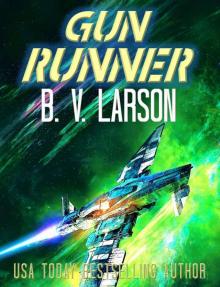 Gun Runner
Gun Runner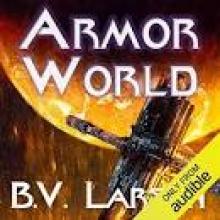 Armor World
Armor World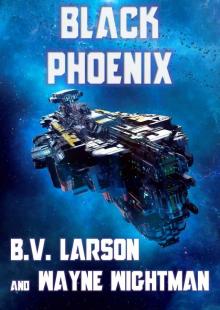 Black Phoenix
Black Phoenix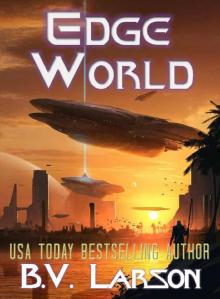 Edge World (Undying Mercenaries Series Book 14)
Edge World (Undying Mercenaries Series Book 14)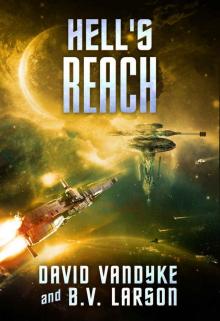 Hell's Reach (Galactic Liberation Series Book 6)
Hell's Reach (Galactic Liberation Series Book 6)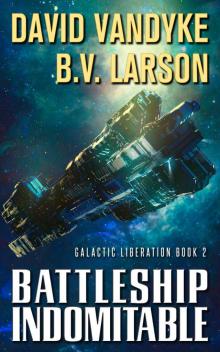 Battleship Indomitable
Battleship Indomitable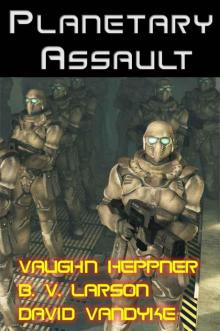 Planetary Assault (Star Force Series)
Planetary Assault (Star Force Series) Flagship Victory (Galactic Liberation Book 3)
Flagship Victory (Galactic Liberation Book 3)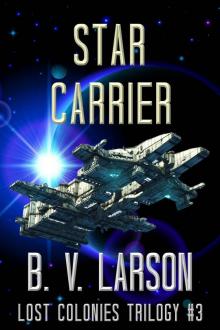 Star Carrier (Lost Colonies Trilogy Book 3)
Star Carrier (Lost Colonies Trilogy Book 3)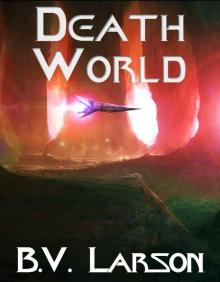 Death World (Undying Mercenaries Series Book 5)
Death World (Undying Mercenaries Series Book 5)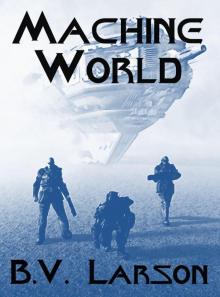 Machine World (Undying Mercenaries Book 4)
Machine World (Undying Mercenaries Book 4) Mech 2
Mech 2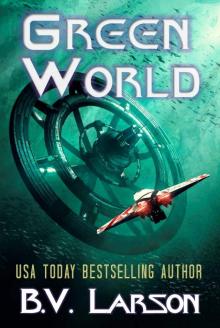 Green World
Green World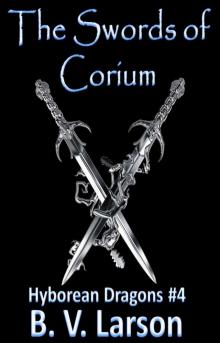 The Swords of Corium
The Swords of Corium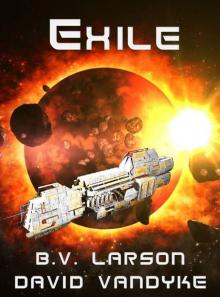 Star Force 11: Exile
Star Force 11: Exile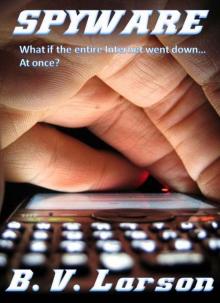 SPYWARE BOOK
SPYWARE BOOK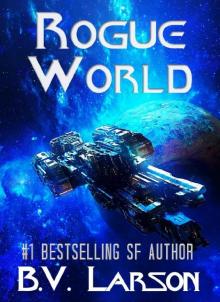 Rogue World (Undying Mercenaries Series Book 7)
Rogue World (Undying Mercenaries Series Book 7)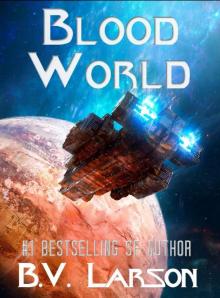 Blood World (Undying Mercenaries Series Book 8)
Blood World (Undying Mercenaries Series Book 8)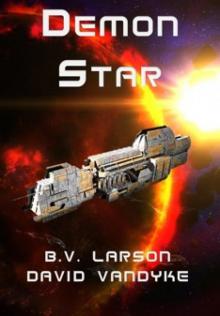 Demon Star
Demon Star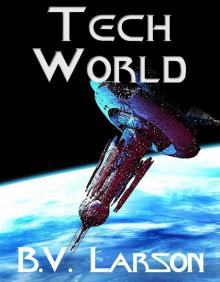 Tech World (Undying Mercenaries Series)
Tech World (Undying Mercenaries Series)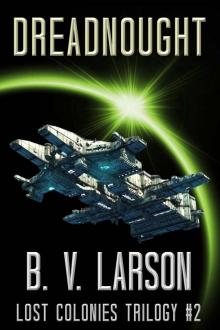 Dreadnought (Lost Colonies Trilogy Book 2)
Dreadnought (Lost Colonies Trilogy Book 2) Shifting
Shifting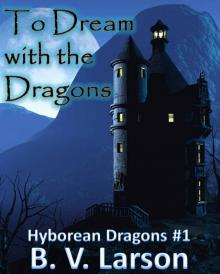 To Dream with the Dragons (Hyborean Dragons)
To Dream with the Dragons (Hyborean Dragons) Flagship Victory
Flagship Victory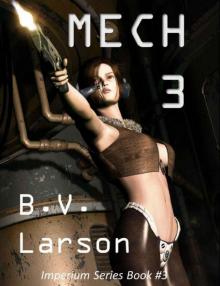 Mech 3: The Empress
Mech 3: The Empress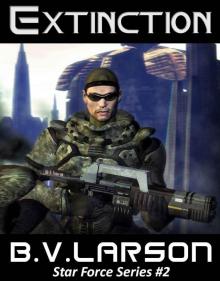 Extinction Ebook Full
Extinction Ebook Full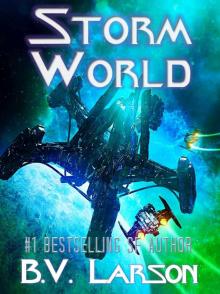 Storm World (Undying Mercenaries Series Book 10)
Storm World (Undying Mercenaries Series Book 10)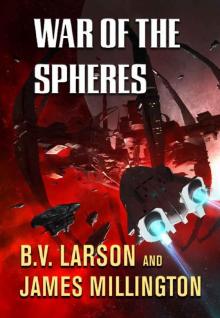 War of the Spheres
War of the Spheres MECH EBOOK
MECH EBOOK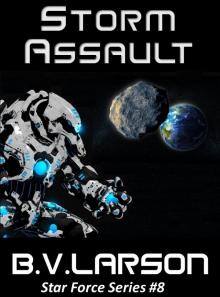 Storm Assault (Star Force Series)
Storm Assault (Star Force Series)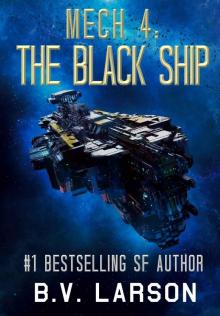 Mech 4: The Black Ship (Imperium Series Book 5)
Mech 4: The Black Ship (Imperium Series Book 5)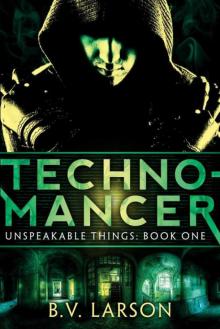 Technomancer
Technomancer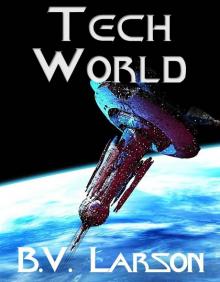 Tech World
Tech World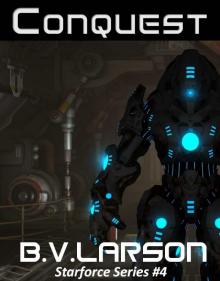 Conquest (Star Force Series)
Conquest (Star Force Series)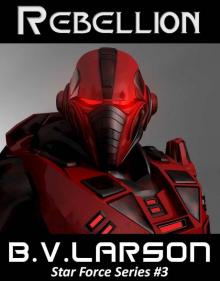 Rebellion sf-3
Rebellion sf-3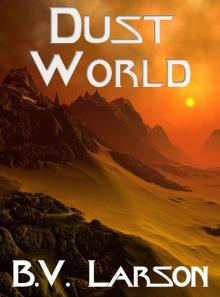 Dust World
Dust World The Dragon Wicked
The Dragon Wicked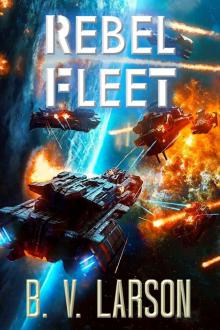 Rebel Fleet
Rebel Fleet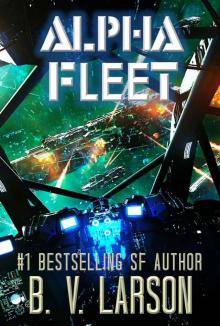 Alpha Fleet (Rebel Fleet Series Book 3)
Alpha Fleet (Rebel Fleet Series Book 3)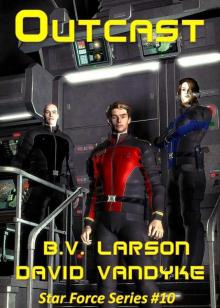 Star Force 10: Outcast
Star Force 10: Outcast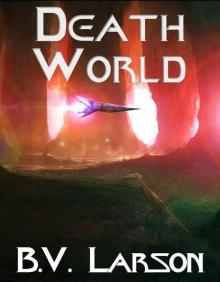 Death World
Death World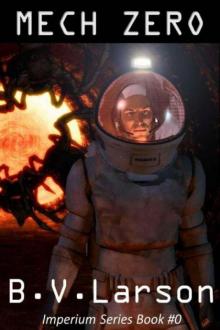 Mech Zero: The Dominant
Mech Zero: The Dominant The Sorcerer's Bane
The Sorcerer's Bane Battleship Indomitable (Galactic Liberation Book 2)
Battleship Indomitable (Galactic Liberation Book 2) Haven Magic
Haven Magic Amber Magic (Haven Series #1)
Amber Magic (Haven Series #1)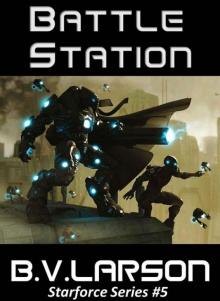 Battle Station sf-5
Battle Station sf-5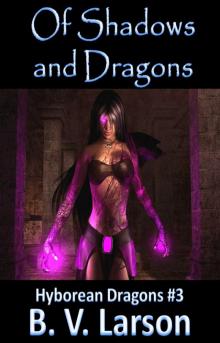 Of Shadows and Dragons
Of Shadows and Dragons Starfire
Starfire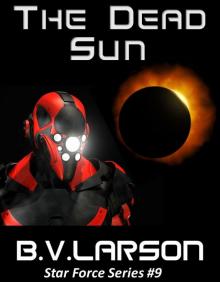 The Dead Sun (Star Force Series)
The Dead Sun (Star Force Series)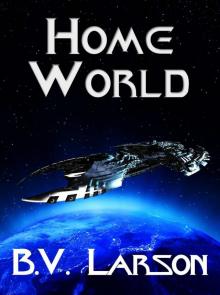 Home World (Undying Mercenaries Series Book 6)
Home World (Undying Mercenaries Series Book 6)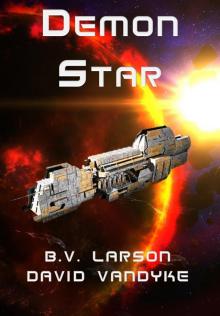 Star Force 12 Demon Star
Star Force 12 Demon Star Dream Magic
Dream Magic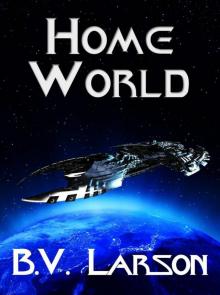 Home World
Home World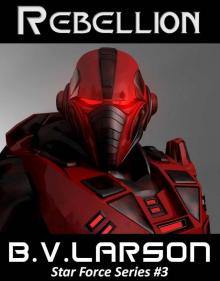 Rebellion Ebook Full
Rebellion Ebook Full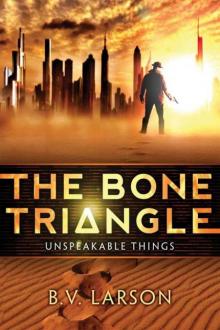 The Bone Triangle
The Bone Triangle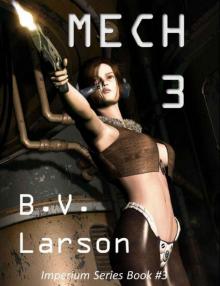 The Empress i-3
The Empress i-3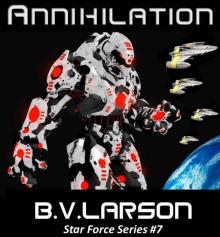 Annihilation (Star Force Series)
Annihilation (Star Force Series)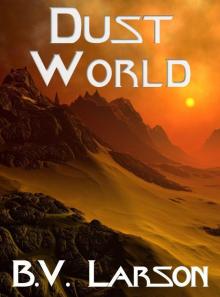 Undying Mercenaries 2: Dust World
Undying Mercenaries 2: Dust World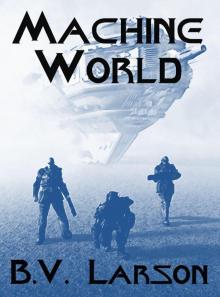 Machine World
Machine World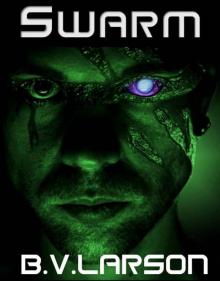 Swarm
Swarm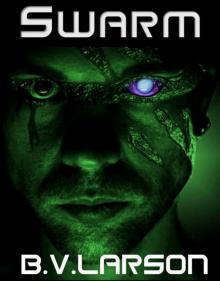 Swarm sf-1
Swarm sf-1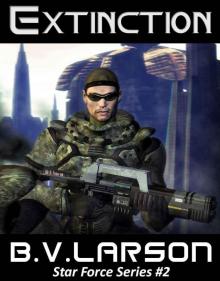 Extinction sf-2
Extinction sf-2 Amber Magic h-1
Amber Magic h-1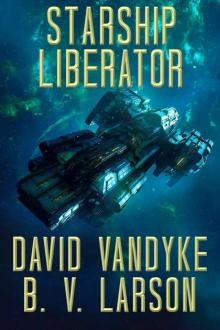 Starship Liberator
Starship Liberator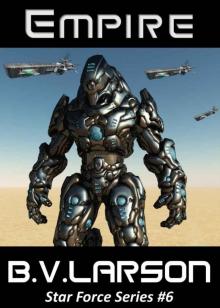 Empire Ebook Full
Empire Ebook Full The Dragon-Child
The Dragon-Child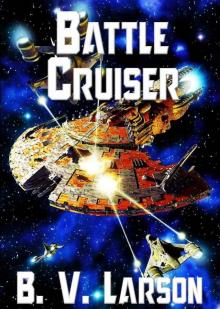 Battle Cruiser
Battle Cruiser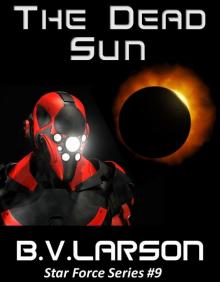 The Dead Sun
The Dead Sun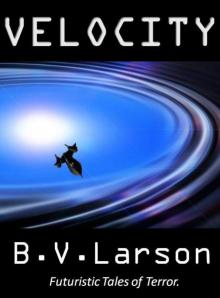 Velocity
Velocity Creatures
Creatures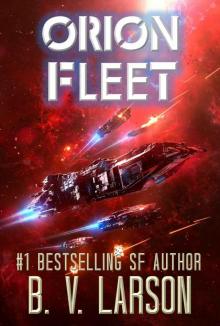 Orion Fleet (Rebel Fleet Series Book 2)
Orion Fleet (Rebel Fleet Series Book 2)